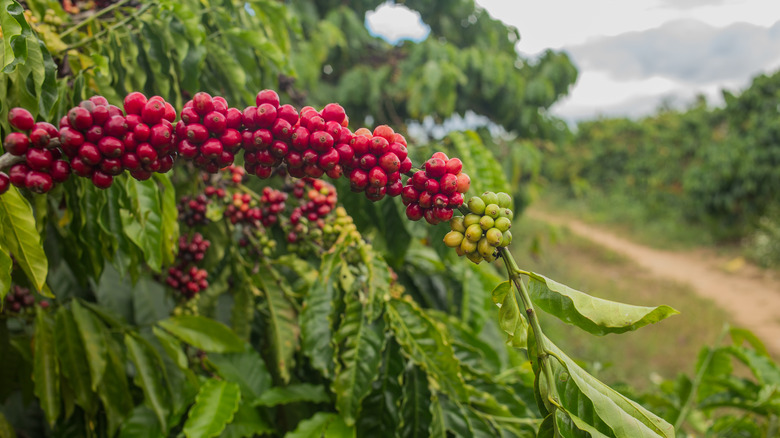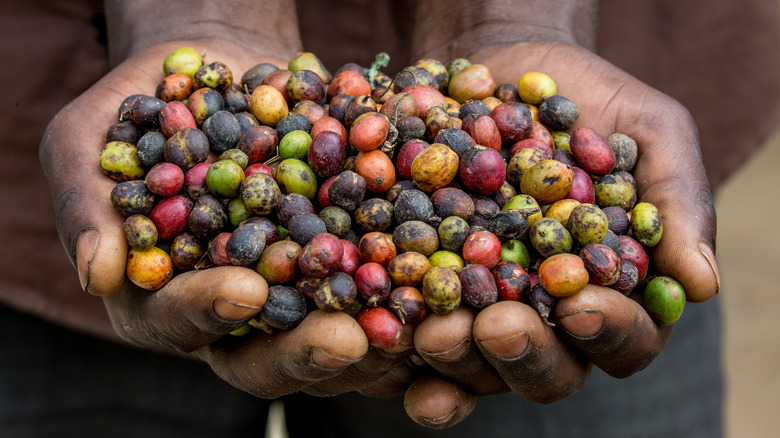What Makes Kenya's Coffee So Special?
A stroll down your average grocery store's coffee aisle will present you with more coffee brands than many people have likely ever tried. A trip to the local café can overwhelm even the more seasoned caffeine-aficionados with its wide selection. With so many options, and offerings wrapped up in aesthetically-pleasing packages, it can be tough to know what types of coffee are actually worth grabbing. Luckily, if you're out to sip the best of the best there's one key word on that bag of beans to look out for: Kenya.
According to the authority at National Coffee Association U.S.A., Kenyan-grown coffee beans have a naturally fruity, acidic flavor profile and produce a fragrant, full-bodied brew. Typically, it says, Kenyan coffee beans are grown by farmers on small estates, primarily in the fertile region of Mount Kenya's foothills. In fact, 70% of all coffee grown in Kenya is cultivated by small-scale farms, per Coffee Bean Corral. But even beyond growing, the country produces its beans with quality in mind from start to finish. Here's what makes Kenya's coffee so special.
It's all about quality control
Kenya might be biologically predisposed as the epicenter of quality coffee. The country's natural climate is ideal for growing some of the best coffee beans in the world. High altitudes, volcanic soil, and moderate temperatures are all conducive to bean cultivation, says Perfect Daily Grind. But, Kenya's elite coffee status goes far beyond growing conditions — it's all about the process.
From harvesting to roasting, Kenya's coffee is carefully and systematically curated to produce a quality cup. Kenyan coffee beans are typically Arabica, says Kenyan coffee purveyor KENCAFFEE, and the beans are hand-picked, hand-sorted, and sun-dried. No factory-processing. Flavor notes typically include honey, caramel, chocolate, and black currant. According to Exilior, the beans undergo a process called "wet harvesting" to maintain their natural acidity. With this method, explains Espresso and Coffee Guide, unroasted green coffee beans are washed before the bean has gotten a chance to harden, so it must take place very shortly after picking. Then, per Coffee Bean Corral, Kenyan coffee beans are fermented for 36 hours to remove their natural slimy exterior coating before getting milled, roasted, and bagged for sale.
So, next time you're stumped as to which coffee beans to pick, keep Kenyan quality in mind. Your taste buds will thank you.

